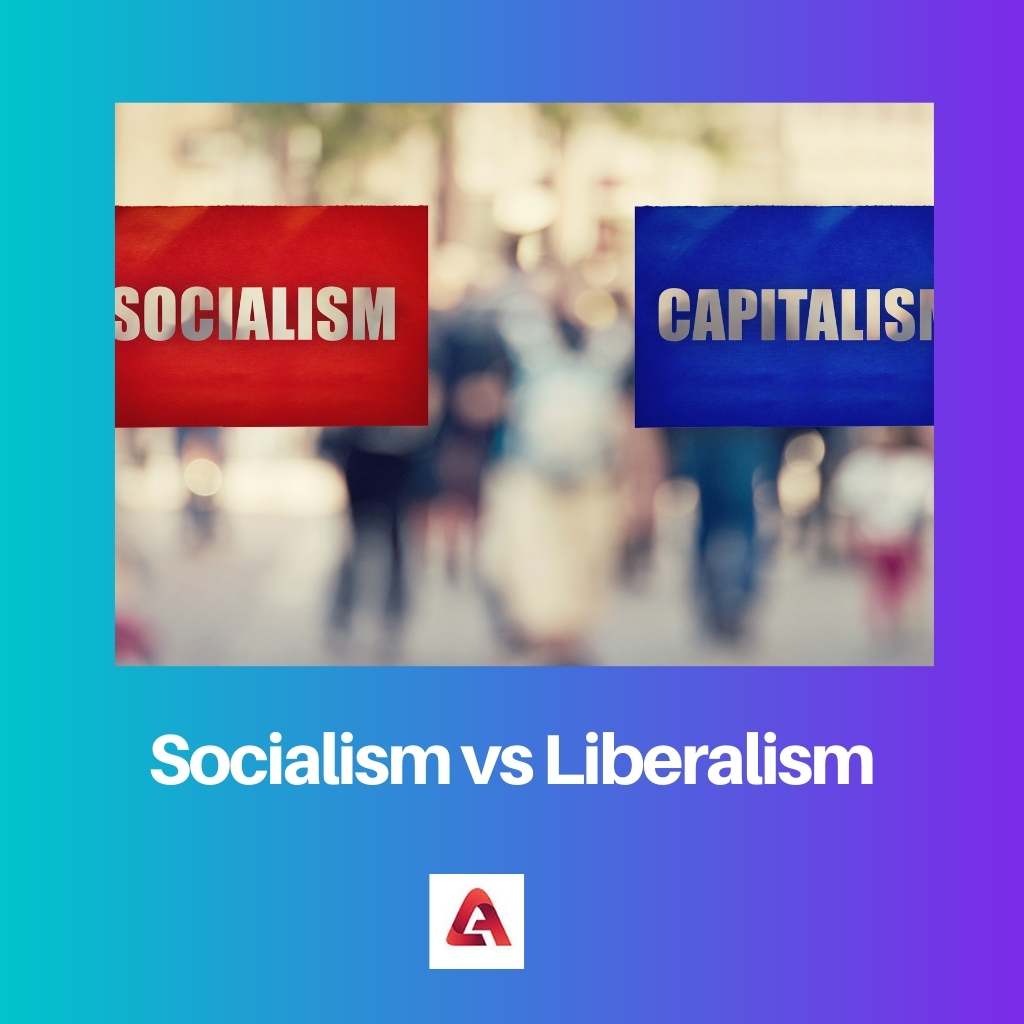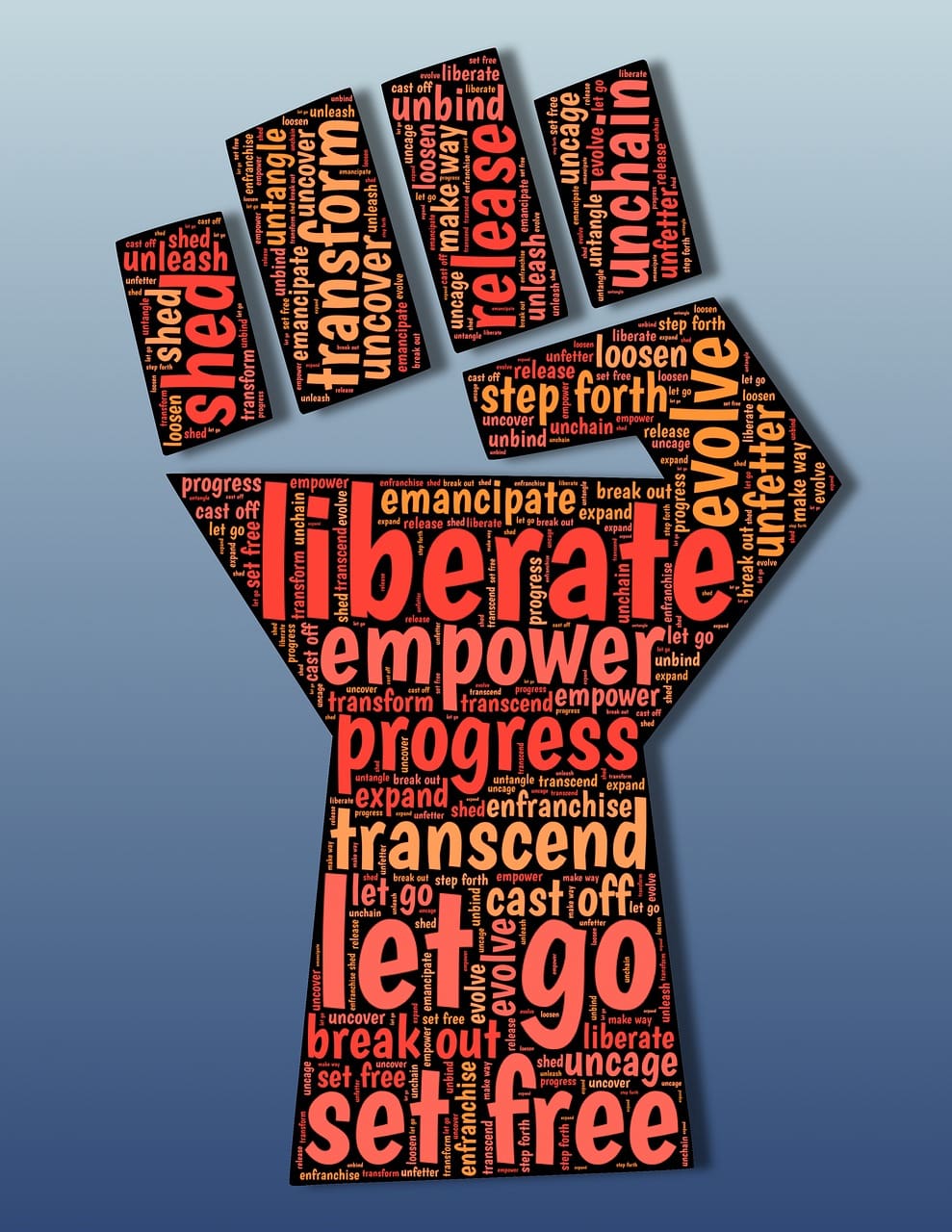In the world, the human race has evolved so much, and with this evolution, certain terms and movements have risen or been introduced to make the quality of life better and easier.
All of these terms are similar in providing equality to people. Example of such terms is Socialism and Liberalism. Both of these provide rights and equality along with opportunities to the citizen.
Due to their similarities, people tend to misunderstand both of them as the same. This is not correct. Using these interchangeably can sometimes lead to misinterpretation.
To avoid them following are all possible differences between Socialism and Liberalism, along with other information.
Key Takeaways
- Socialism emphasizes collective ownership of the means of production, while liberalism emphasizes individual rights and freedoms.
- Socialism seeks to reduce income inequality, whereas liberalism focuses on providing equal opportunities.
- Socialism supports a larger government role in economic and social affairs, while liberalism advocates for limited government intervention.
Socialism vs Liberalism
Socialism is a political and economic system where the means of production, distribution, etc. are collectively owned by the community, through the government. Liberalism, is a political idea that focuses on the freedom, and protection of individual rights, such as freedom of speech.

Socialism is an ideology according to which people are provided equality in various elements of life. The main motive being social equality, but that does not mean it is restricted to that only.
There can be a different definitions of this based on different aspects and on based on it.
Socialism can be of different types, such as Democratic Socialism, Revolutionary Socialism, Libertarian Socialism, Market Socialism, and Green Socialism.
Liberalism is an ideology based on the equality and liberty of the people in a country. This focuses on making everyone equal in all environments.
It has much meaning. Focusing on equality remains constant in both modern and older versions of it. This has certain advantages, such as the economy’s growth, making citizens’ lives easier, etc.
Along with all of these, some people might misuse this to their benefit and, in general, also have major drawbacks.
Comparison Table
| Parameters of Comparison | Socialism | Liberalism |
|---|---|---|
| Basic Value | Equality | Freedom |
| View of Society | Sociality or Solidarity | Individualism |
| Economy | Collective Ownership | Private Property |
| Culture | Universal Rights and Interests | A plurality of interests and worldviews |
| Political Struggle Against | Capital interests, exploitations, ideology, capitalist state | Regulating State |
What is Socialism?
There are different meanings of Socialism. Overall it means providing social equality to everyone in work, society, politics, etc.
The following are some advantages of Socialism:
- Absence of Exploitation: under Socialism, exploitation is terminated completely. Exploitation is not healthy for any country.
- In this situation, people are not given equal rights and are used for several heavy activities and some work. This also results in discrimination among people.
- Rejection of Discrimination: as mentioned above, discrimination is the most disgusting insect that can destroy a country’s peace and equality. And in a democratic country, every person expects to be equal to everyone. Under this, the people do whatever they find is right and do not hurt the feeling or rights of anyone else.
The disadvantage of Socialism:
- Dependence on Cooperativeness: one of the major disadvantages of Socialism is that it does not encourage the competitiveness of the people but appreciates and depends on the cooperativeness of other people.
- Therefore, if a single person is right in a group or wrong, the single person might not get the opportunity to speak or will be ignored.
- Lack of innovation: as mentioned above, it does not encourage competitiveness. Therefore, there is a lack of innovation. Innovation does not get a reward, so old things are repeated.
What is Liberalism?
It is based on liberty, equality before the law, and the consent of the government. The liberal system emphasizes on equality of everyone in terms of society, industry, employment, etc. The following are the benefits of Liberalism:
- Economic Growth: this contributes to making economic growth by providing everyone an equal opportunity in the work environment, and this further results in contributing to the economy.
- Elimination of Slavery: this also eliminates slavery. Slavery sometimes causes feelings of discrimination among people. And to avoid this issue, Liberalism eliminates slavery so that everyone has equal status.
- Preservation of Human Rights: this is one of the most important results of Liberalism in that it preserves and protects human rights from getting exploited.
Other than these, it also provides collective security.
Drawbacks of Liberalism:
- Market Inconsistency: sometimes, Liberalism can result in market inconsistency.
- Unfair Wages: sometimes to lift some sections of society provide different rates of wages to people, causing a feeling of discrimination among the rest of the section of society.
Hence, it is clear how Liberalism contributes to society. Although it still has some drawbacks, its benefits are more important.

Main Differences Between Socialism and Liberalism
- Both of them have different basic values. The basic value of Socialism is equality, meaning its main focus is to provide equality to all sections of society so that no one will feel discriminated against and have equal opportunity, whereas the basic value of Liberalism is freedom, its main focus is to provide freedom to everyone in the country to do the things they like and love without hurting anyone’s feeling.
- Both of these ideologies view society from a different perspective. In the case of Socialism, it views society as sociality and solidarity, it relies on the cooperativeness of the people in society and providing equal opportunity to the ideas accepted by them, whereas liberalism views society as individualism, it also promotes competitiveness by an individual and does not relies on cooperativeness as much.
- When compared in terms of economy, Socialism is more collective ownership of people together in the society; the person is not given much importance, whereas Liberalism is entirely based on private property.
- Socialism emphasizes on universal rights and interests of people. For example, it eliminates slavery in the economy by the low-caste people, and several reservations are made for lower-caste people to provide them more opportunities, whereas; liberalism emphasis more on a plurality of interests and worldviews, it provides an opportunity to people to represent on global as well.
- Socialism is more based on providing equality to people in society, whereas Liberalism is a broader term and works to protect the rights of the people. These rights could be the right to speech, the right to freedom, etc.


This article provides a compelling examination of Socialism and Liberalism, encapsulating their ideologies and impacts with unparalleled clarity and insight.
This article offers a thought-provoking analysis of Socialism and Liberalism, emphasizing the key takeaways and differences between the two ideologies, adding depth to the discussion.
The comparison table excellently presents the contrasting parameters of Socialism and Liberalism, making it easier to discern their unique characteristics and implications.
I couldn’t agree more. It’s an insightful way to illustrate their inherent disparities and the societal implications arising from these divergent ideologies.
I find this article to be very informative and it provides a clear and concise comparison between Socialism and Liberalism that can be easily understood by everyone.
The comparison of Socialism and Liberalism in this article seems to be focused on intellectual discourse and brings to light the nuanced differences between the two, further solidifying my understanding of the topic.
I agree. The detailed breakdown of the advantages and disadvantages of both ideologies provides a comprehensive view of their impact on society and the economy.
While I appreciate the detailed elaboration on the advantages and drawbacks of Socialism and Liberalism, I find the assessment to be intellectually stimulating and enlightening.
The detailed exploration of key differences between Socialism and Liberalism underscores the intellectual rigor of this article, providing a rich and insightful discourse on the topic.
This piece showcases a profound understanding of Socialism and Liberalism, juxtaposing their economic and societal implications with lucidity and depth.
Indeed, the evaluative approach to explicate Socialism and Liberalism in this article is exceptionally enlightening, enriching the intellectual discourse on these ideologies.
Absolutely, the delineation of the advantages and drawbacks of both ideologies serves as a comprehensive guide to discern their fundamental disparities and societal relevance.